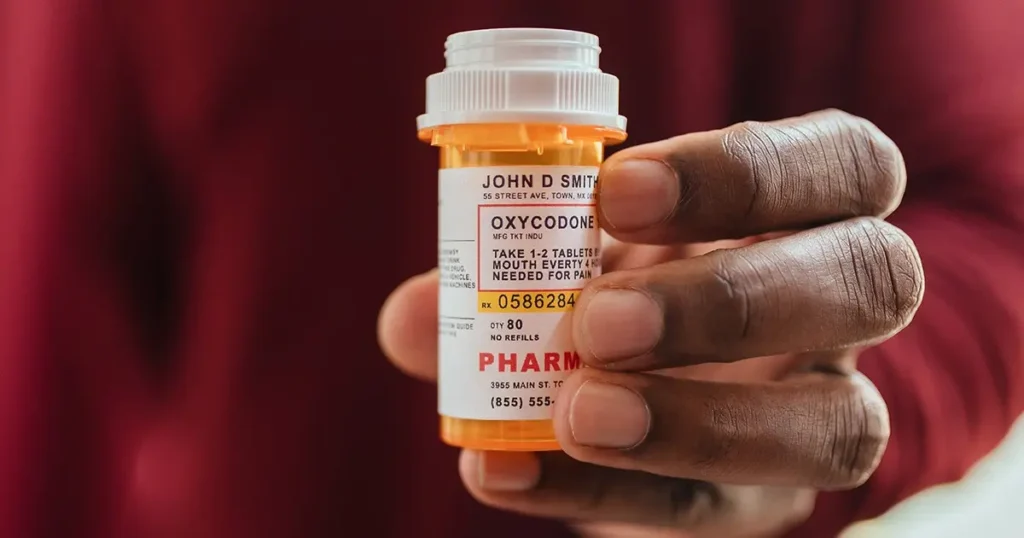Ad Agency Pays Millions In Settlement for Fueling The Opioid Epidemic

Advertising and Marketing company Publicis Health, part of ad giant Publicis Groupe SA, has recently agreed to pay a $350 million settlement after a multistate investigation for helping OxyContin maker Purdue Pharma fuel the opioid epidemic in the United States.
Publicis worked with Purdue Pharma from 2010 until 2019. The advertising company developed marketing campaigns and materials that promoted OxyContin. The company created advertisements and material such as pamphlets and brochures that promoted the drug as safe and with no risk of being addictive or abused.
This is the first time ever that an advertising company has paid a settlement amount for a role in the opioid crisis.
The State Attorneys General has stated that Publicis Health played a fundamental role in developing “predatory and deceptive marketing strategies” for Purdue Pharma, increasing prescriptions and sales of OxyContin, influencing a devastating and lethal effect.
Publicis has not admitted wrongdoing or liability as part of the settlement, which has resulted from three years of negotiations.
However, the group’s statement said, “We recognize the broader context in which that lawful work took place.”
“The fight against the opioid crisis in the United States requires collaboration across industries, lawmakers, and communities, and we are committed to playing our part,” the statement said.
New York Attorney General Letitia James expressed how Publicis, for decades, has helped manufacturers like Purdue Pharma convince doctors to overprescribe opioid painkillers, continuing to fuel the opioid crisis and devastating communities nationwide. The settlement agreement will cause Publicis to cease their illegal behavior, and the money will be used to help rebuild communities.
According to the states’ lawsuits, Publicis Health executed a marketing strategy to benefit Purdue Pharma by McKinsey & Co. called “Evolve to Excellence.” This strategy targeted doctors who prescribed the most OxyContin and overwhelmed them with pestering sales calls and marketing the pill. The campaign advertised the drug as “abuse-deterrent” and encouraged doctors to increase dosage. McKinsey & Co. also agreed to pay a $641 million settlement to resolve claims by a number of states.
According to a lawsuit led by the state of Massachusetts, Publicis planned and utilized unfair and deceptive marketing campaigns designed to encourage doctors to prescribe opioids to more patients, increase dosage, and prescribe the pill for an extended period.
“By design, Publicis’s scheme worked to counter public health measures intended to reduce unnecessary opioid use because more opioid use generated profits for Publicis’s opioid clients,” stated a lawsuit by the state of Massachusetts.
The settlement agreement requires Publicis Health to pay $350 million to the states within 60 days. Also, the company is banned from accepting any future contracts or engagements regarding the marketing or sales of opioids. The settlement total will be divided among all 50 states as well as the District of Columbia and U.S. territories.
Additionally, Publicis is required to release all internal documents detailing its work for Purdue Pharma and any other opioid manufacturers and all records of communications with consultants such as McKinsey and Practice Fusion. This will all be composed in an online document repository for the purpose of public disclosure.
This payment represents a nationwide crusade to punish companies that have played a part in enabling the opioid epidemic and its increase. From this settlement, a legal crackdown has begun, resulting in settlements totaling billions of dollars from several companies such as Johnson & Johnson, CVS, and Walmart. Fines have been directed to opioid abatement, treatment programs, and prevention education and resources.
As for Purdue Pharma, they were originally set to pay $6 billion in settlements from all its lawsuits for the harm caused by the opioids as well as giving up ownership of its pharmaceutical drug, OxyContin.
However, in 2019, Purdue Pharma filed for bankruptcy after thousands of lawsuits from state and local governments alleged the company oversupplied OxyContin, though its bankruptcy plan remains in legal dispute. The company pleaded guilty in 2020 to three federal felonies related to marketing and distributing OxyContin, the opioid pharmaceutical drug that represents the beginning of the now full-blown opioid crisis.
